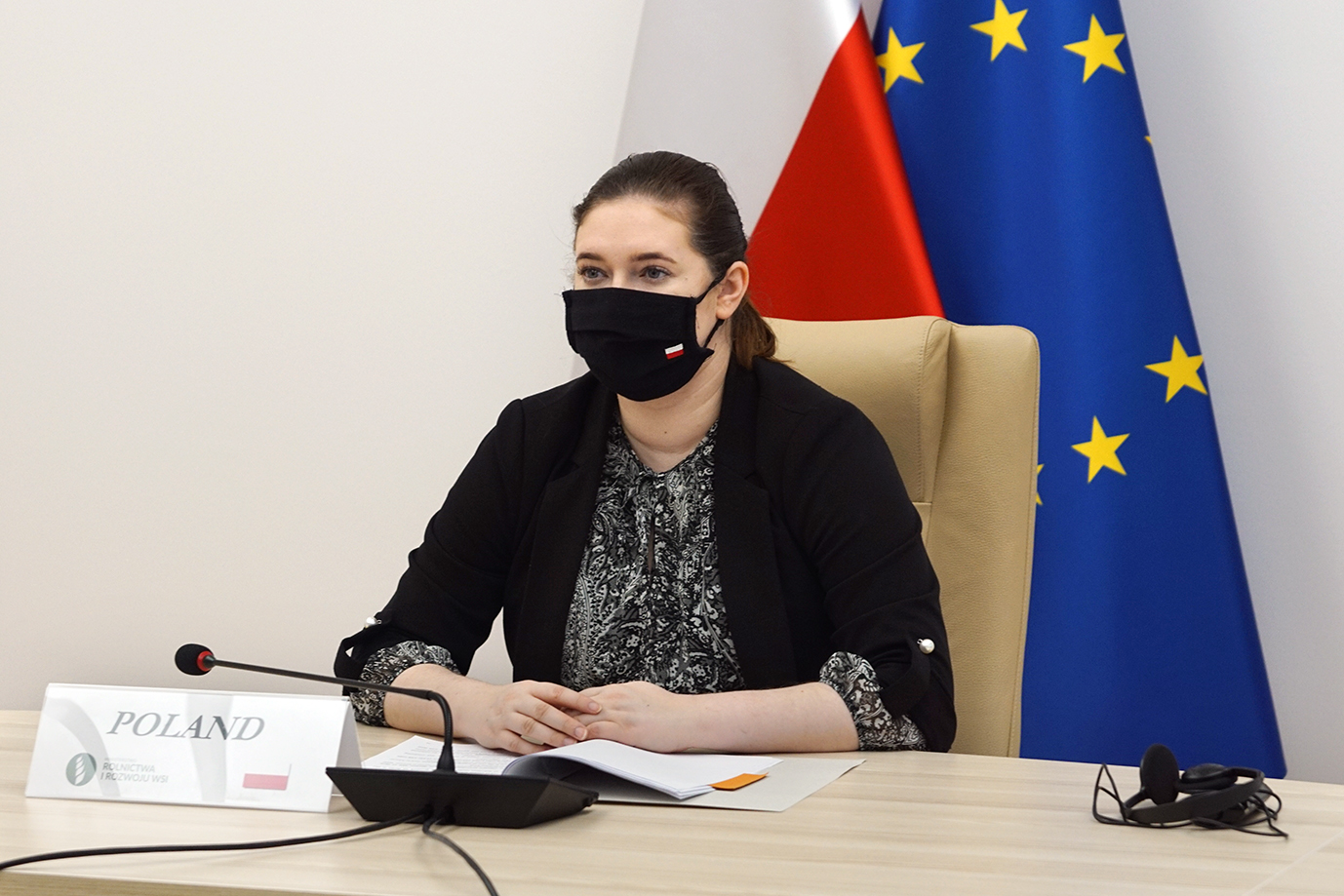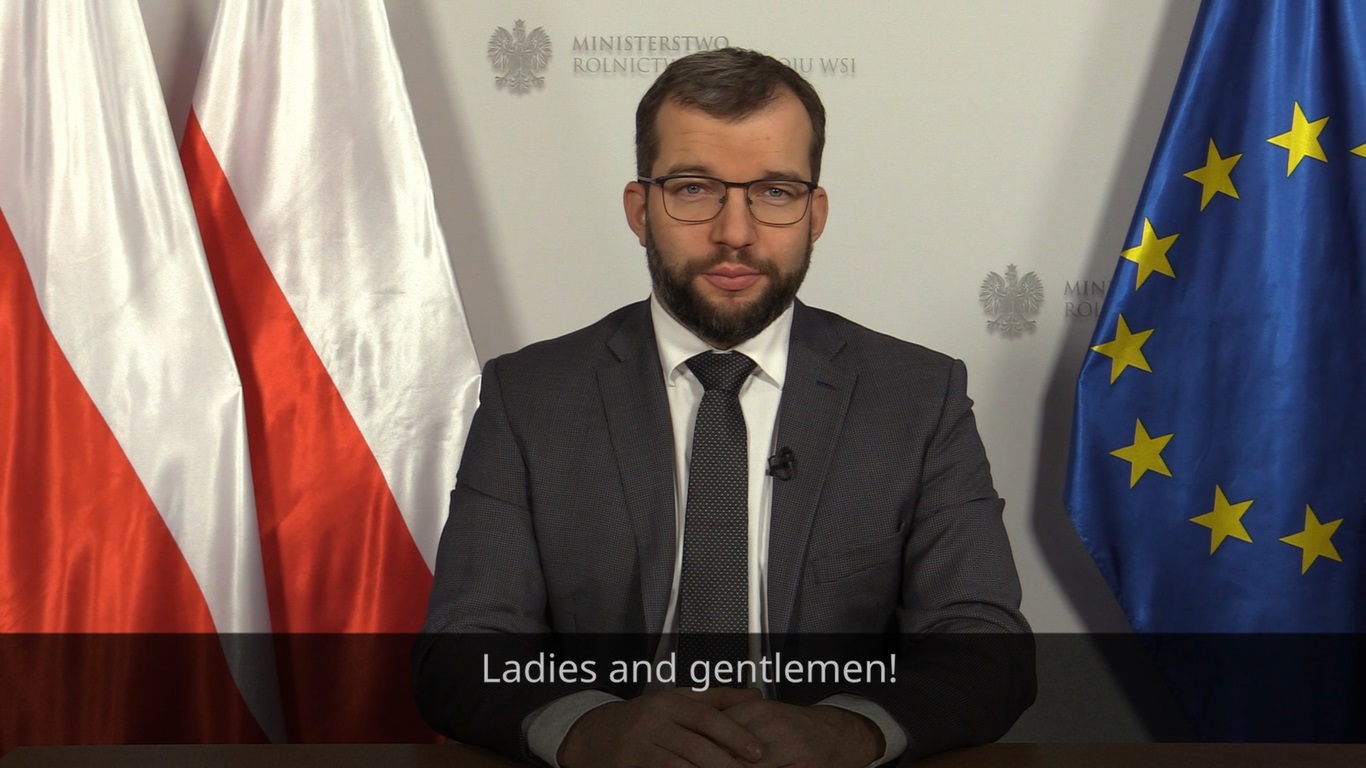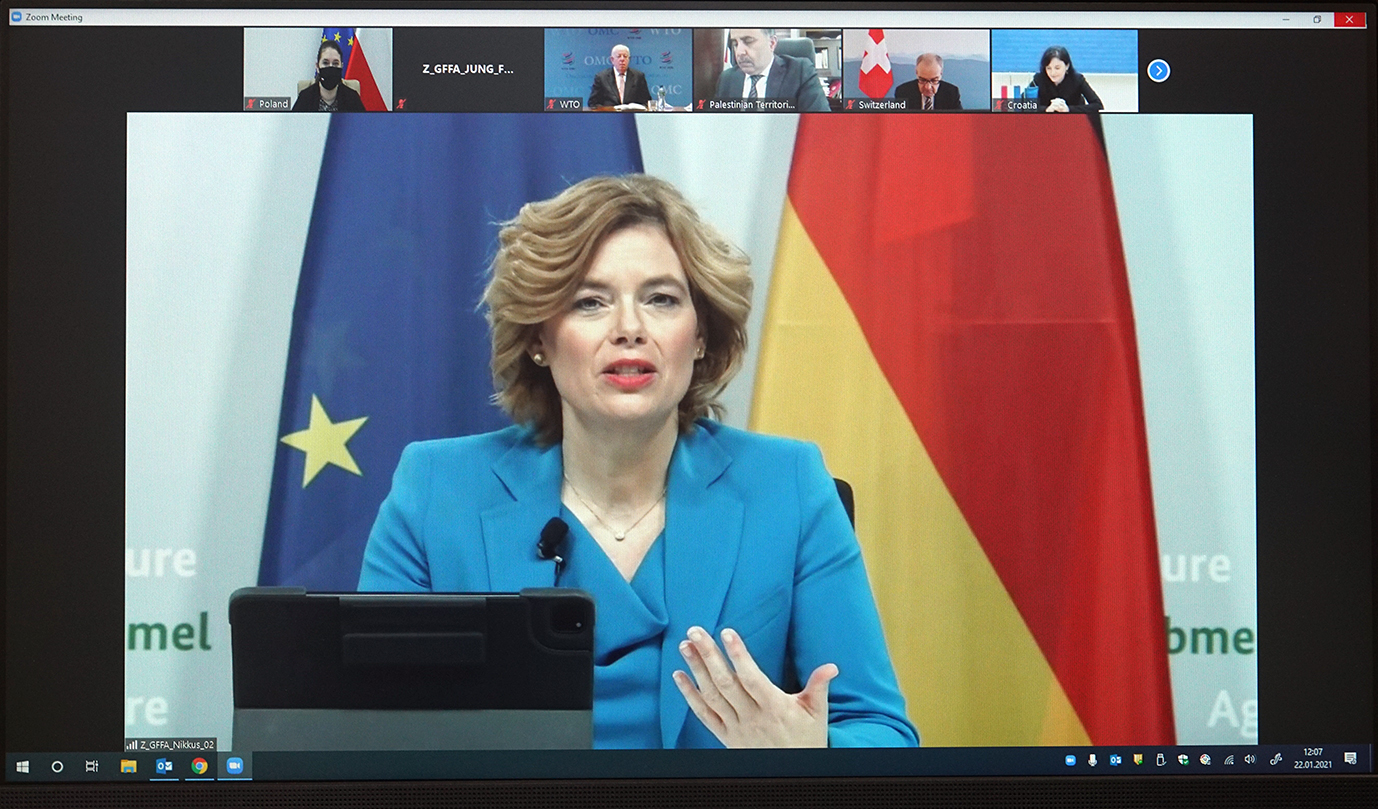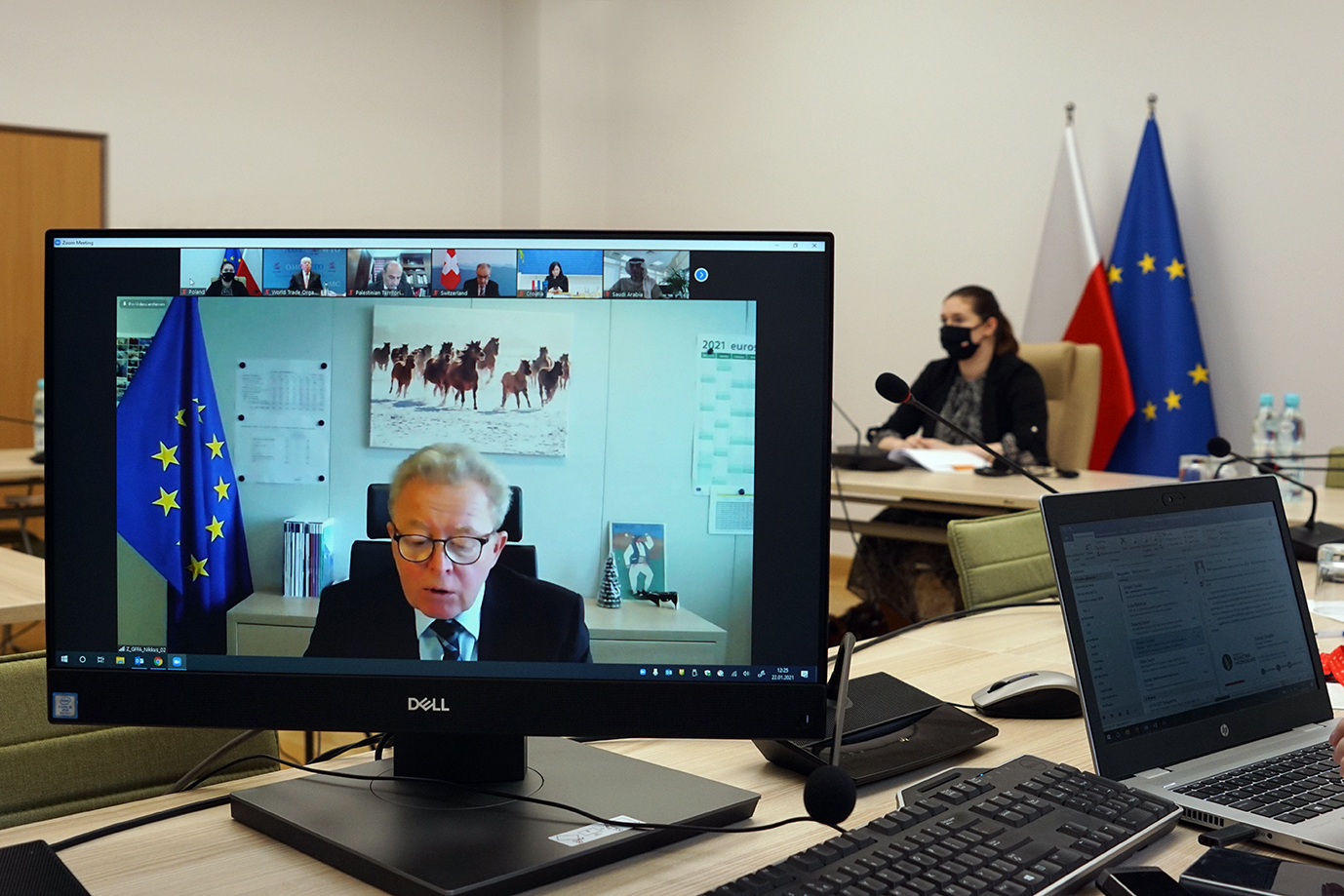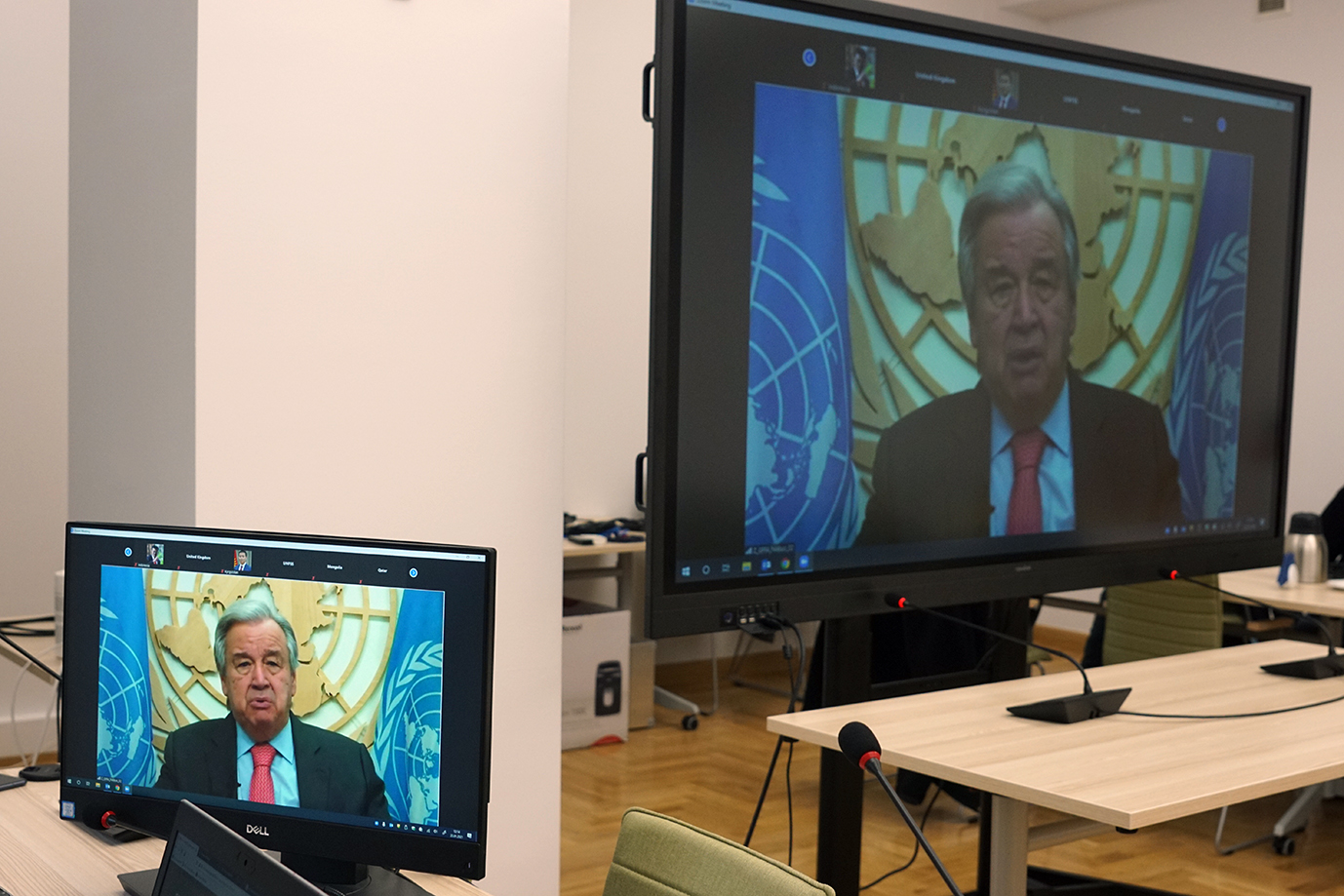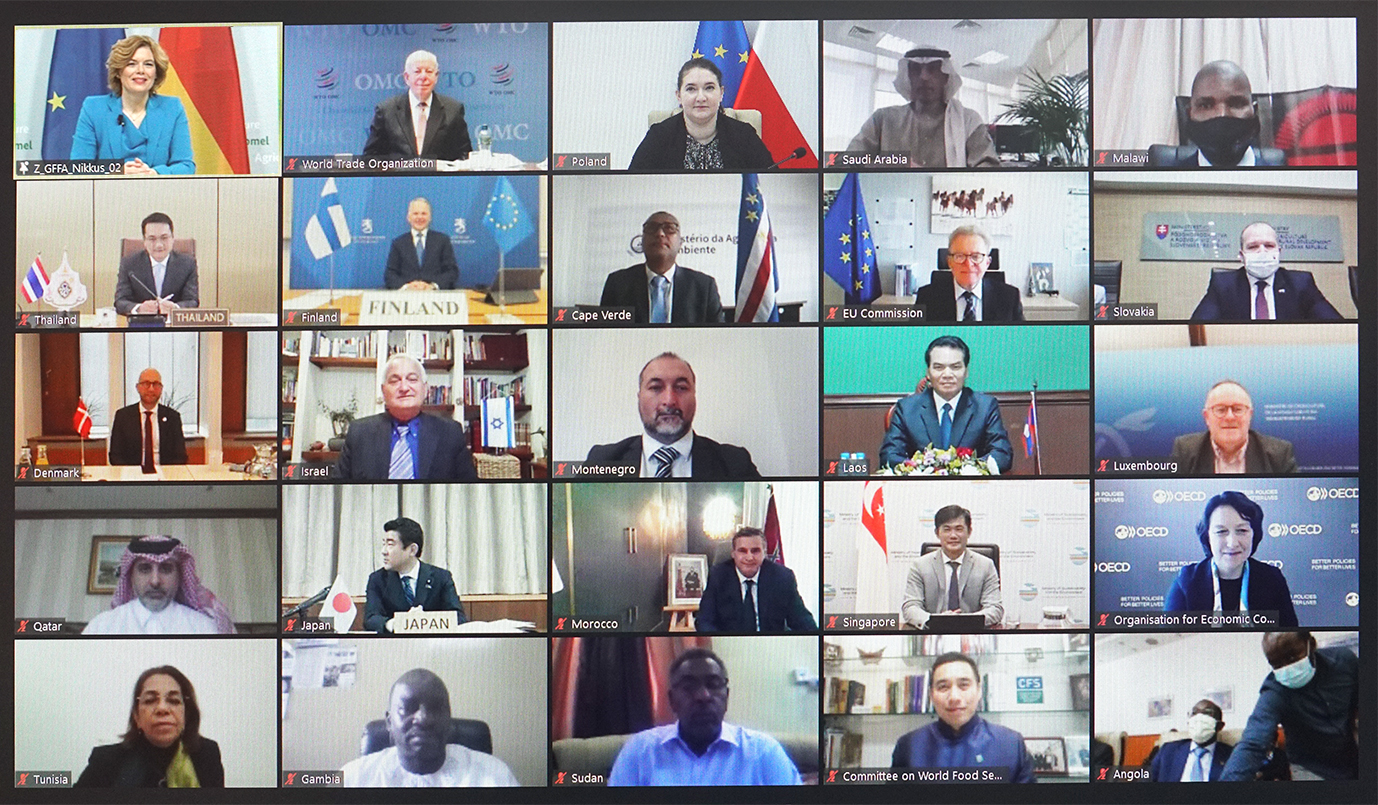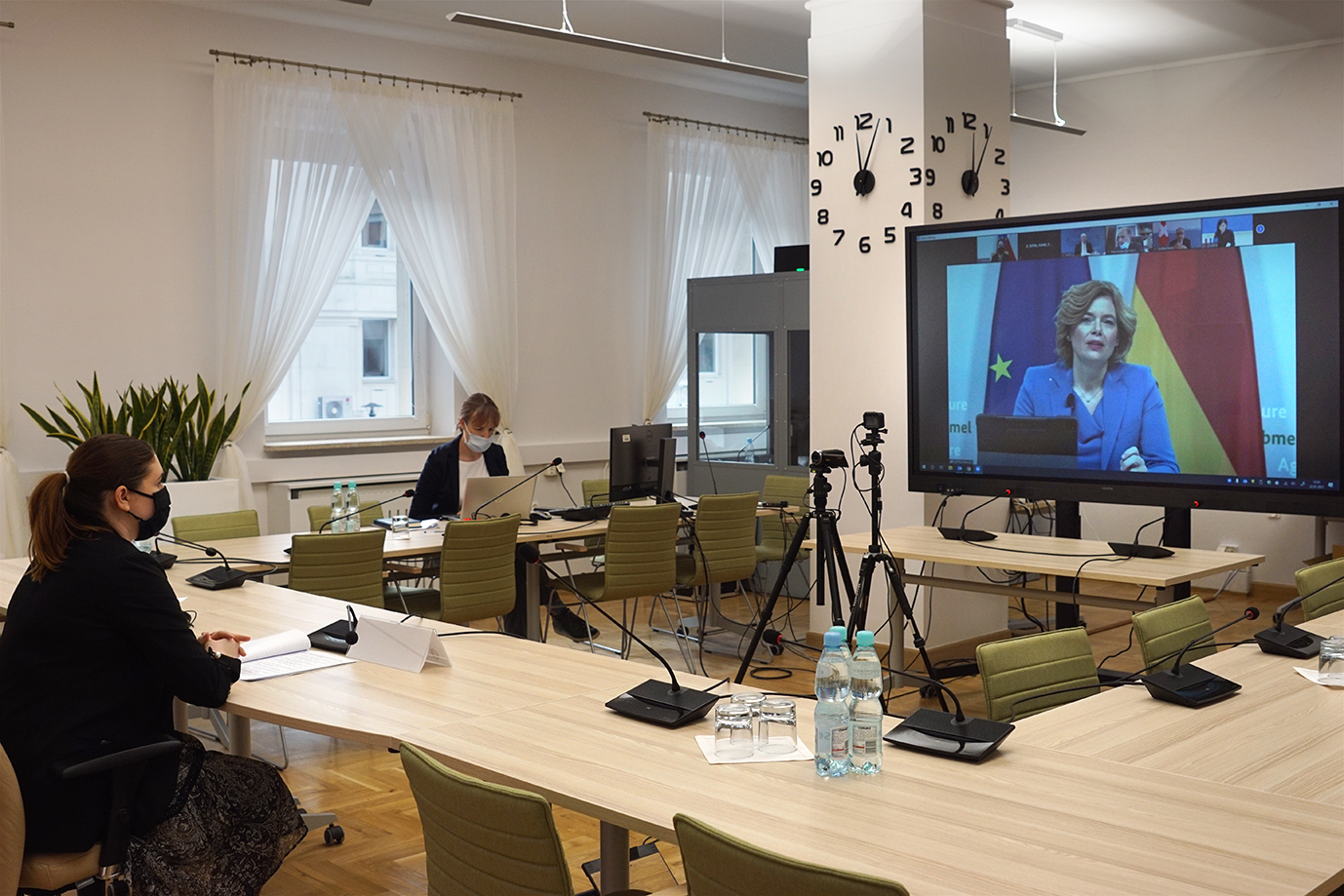The Berlin Agriculture Ministers’ Conference discusses food security
22.01.2021
How to feed the world in times of pandemics and climate change? This was the topic of this year’s Berlin Agriculture Ministers’ Conference which assembled online today. The conference was attended by State Secretary Anna Gembicka.

Solidarity in action to eliminate hunger
The Minister for Food and Agriculture of the Federal Republic of Germany, Julia Klöckner, who hosted the meeting, stressed the absolute necessity of taking joint action to eliminate hunger and malnutrition worldwide, especially in the context of the COVID-19 pandemic and the ongoing climate change.
The UN Secretary-General António Guterres, and David Beasley, Director of the World Food Programme, which won the Nobel Peace Prize in 2020, appealed for solidarity with those who are vulnerable and for the international community to act responsibly. EU Commissioner for Agriculture Janusz Wojciechowski and FAO Director-General Qu Dongyu highlighted the importance of innovation in the food sector and a shorter supply chain.
Preventing pandemics
In a session devoted to the prevention of pandemics, Deputy Minister Anna Gembicka pointed out that human health cannot be separated from animal and plant health or from the state of the natural environment in which we live.
– Effective prevention of animal diseases and their spreading must be undertaken at international level, based on science and consolidated actions. This is particularly important in the case of cross-border diseases, such as African Swine Fever (ASF) or highly pathogenic avian influenza (HPAI). Plant health is also a crucial factor since plants are the core element of natural ecosystems and the beginning of the food chain. Plants provide food and produce the oxygen we breathe. Therefore, by protecting plants from pests, pathogens or harmful human activities, we protect life on Earth and help to prevent crises, Minister Gembicka said.
With regard to infectious animal diseases, Anna Gembicka drew attention to regionalisation issues. She advocated solidarity to reduce or eliminate barriers in trade with third countries, as such barriers have a significant impact on the situation of food producers in times of globalisation and ongoing pandemics.
Address by Minister Grzegorz Puda
On the occasion of the Global Forum for Food and Agriculture, Minister Grzegorz Puda prepared and sent his official address to the organisers. In his address, Minister stressed that ensuring food security is becoming the second area that calls for urgent action and cooperation at the global level, right next to the health safety crisis. The pandemic has revealed the key role of family farms in maintaining food safety. Guarantees for the viability of such farms are particularly crucial for environmental, economic and social sustainability. Economically viable family farms are a prerequisite for a sustainable agricultural model. With low-carbon economy that conserves biological resources for future generations, such farms help to achieve environmental and climate goals. Our priority is to create a fair, healthy and environmentally friendly food system that is resilient to crises and adverse developments.
Minister Grzegorz Puda’s address is available on the event website at: https://www.gffa-berlin.de/en/agrarministerkonferenz-gffa-2021/.
Conclusions from today’s debate
In the conclusions from the debate, the participating countries adopted the Final Communiqué, presenting their common postulates and commitments to minimise the impact of the current pandemic on food security, to prevent future pandemics and mitigate the effects of climate change.
The 13th edition of the Berlin Conference
The Berlin Agriculture Ministers’ Conference, joined by ministers from around the world, is organised each year in January by Germany’s Federal Ministry of Food and Agriculture, within the framework of the International Green Week, a renowned international fair on food and agriculture. This year’s 13th Ministerial Summit, held virtually due to the pandemic, was attended by 91 delegations from countries around the world as well as 14 international organisations and institutions.

